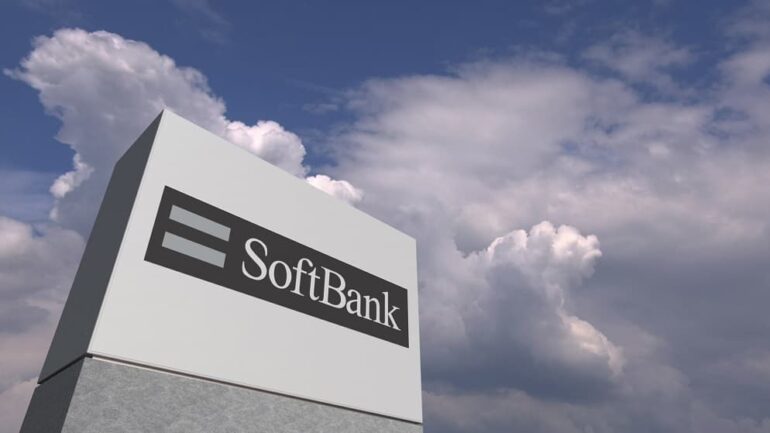TL;DR:
- SoftBank, post-Arm IPO, plans substantial investments in the artificial intelligence sector.
- OpenAI is a potential partner, with SoftBank considering a wide strategic alliance.
- Alternatives to OpenAI are also being explored, including investments in competitors.
- SoftBank’s offer to acquire UK-based AI chipmaker Graphcore was not accepted.
- The Arm IPO has boosted SoftBank’s cash reserves, potentially reaching $65 billion.
- Masayoshi Son’s close ties with OpenAI’s CEO signal a strategic alignment.
- SoftBank’s mobile division already offers chatbot services in partnership with OpenAI.
- Microsoft’s significant $10 billion investment in OpenAI plays a crucial role.
- SoftBank’s mobile subsidiary aims to develop its own ChatGPT-like product for the Japanese market.
- Masayoshi Son’s renewed deal-making enthusiasm is shifting SoftBank into “offense mode.”
- SoftBank aspires to become a significant player in the AI market, challenging Nvidia.
- Arm’s focus on AI in its growth narrative marks a shift towards cloud computing.
- Arm’s impact on massive language model development is seen as relatively lower compared to Nvidia.
Main AI News:
In the wake of the highly successful initial public offering of UK chip designer Arm, SoftBank, led by its visionary founder and CEO, Masayoshi Son, is gearing up for a strategic foray into the world of artificial intelligence. With a significant war chest at their disposal, SoftBank is set to invest tens of billions in the AI sector.
One potential avenue of investment for SoftBank is OpenAI, a prominent player in the AI landscape with strong backing from Microsoft. Sources reveal that SoftBank is actively exploring the possibility of establishing a comprehensive strategic alliance with OpenAI, which is renowned for creating ChatGPT, a revolutionary language model.
In addition to OpenAI, SoftBank is considering various alternatives in the AI space, including substantial investments in companies competing directly with ChatGPT’s creators. There are even reports of SoftBank’s preliminary offer to acquire the UK-based AI chipmaker Graphcore.
However, when approached for comment, SoftBank chose to remain tight-lipped, stating, “We do not comment on rumors.” OpenAI has similarly opted not to respond to these speculations, leaving industry insiders to wonder about the potential developments.
Analysts estimate that the recent Arm IPO, which generated approximately $5 billion in revenues, will significantly boost SoftBank’s cash reserves, potentially reaching an impressive $65 billion. This financial strength encompasses both SoftBank’s existing resources and its substantial 90% stake in Arm, which can be leveraged for loans.
Masayoshi Son, a self-proclaimed “heavy user” of ChatGPT, has developed a close relationship with OpenAI’s CEO, Sam Altman. Son has gone so far as to describe Altman as “one of the key people on Earth,” highlighting the frequency of their interactions.
Already, SoftBank’s mobile division enjoys a business relationship with OpenAI, enabling the provision of chatbot deployment services to Japanese businesses. This service is built on Microsoft’s Azure computing platform, which serves as OpenAI’s exclusive cloud provider. Notably, Microsoft recently made a substantial multi-year investment of $10 billion in OpenAI.
Furthermore, the SoftBank mobile subsidiary has unveiled plans to develop its own ChatGPT-like product tailored specifically for the Japanese market.
Insiders close to Masayoshi Son assert that his enthusiasm for deal-making has undergone a significant resurgence. He declared in June his shift from a “defensive mode” during the pandemic and the tech slowdown of 2022 to a renewed “offense mode.” Son envisions a future where SoftBank becomes a formidable contender in the AI arena, including the realm of processors powering this transformative technology.
Currently, Nvidia holds a dominant position in the AI processor market, with its market value surpassing the trillion-dollar mark this year. Notably, SoftBank had previously acquired a stake in Nvidia in 2017, although it was later divested.
During the recent IPO roadshow, Arm emphasized AI as a pivotal element in its growth narrative, signaling a strategic pivot away from its primary focus on the smartphone market and towards expanding its footprint in the realm of cloud computing.
Analysts contend that, compared to Nvidia, Arm may have a lesser impact on the development of massive language models, a crucial technology underpinning innovations like ChatGPT.
In the wake of Arm’s IPO success, SoftBank’s ambitious aspirations to become a major force in the AI industry are taking shape, setting the stage for potentially transformative developments in the world of technology and artificial intelligence.
Conclusion:
SoftBank’s strategic move into the AI sector, following the success of Arm’s IPO, holds the potential to reshape the technology market. A potential partnership with OpenAI and investments in AI competitors signal a commitment to AI innovation. The substantial cash reserves and Masayoshi Son’s deal-making zeal position SoftBank as a formidable challenger to industry leader Nvidia. Arm’s pivot towards AI underscores the growing importance of artificial intelligence in the tech landscape.

